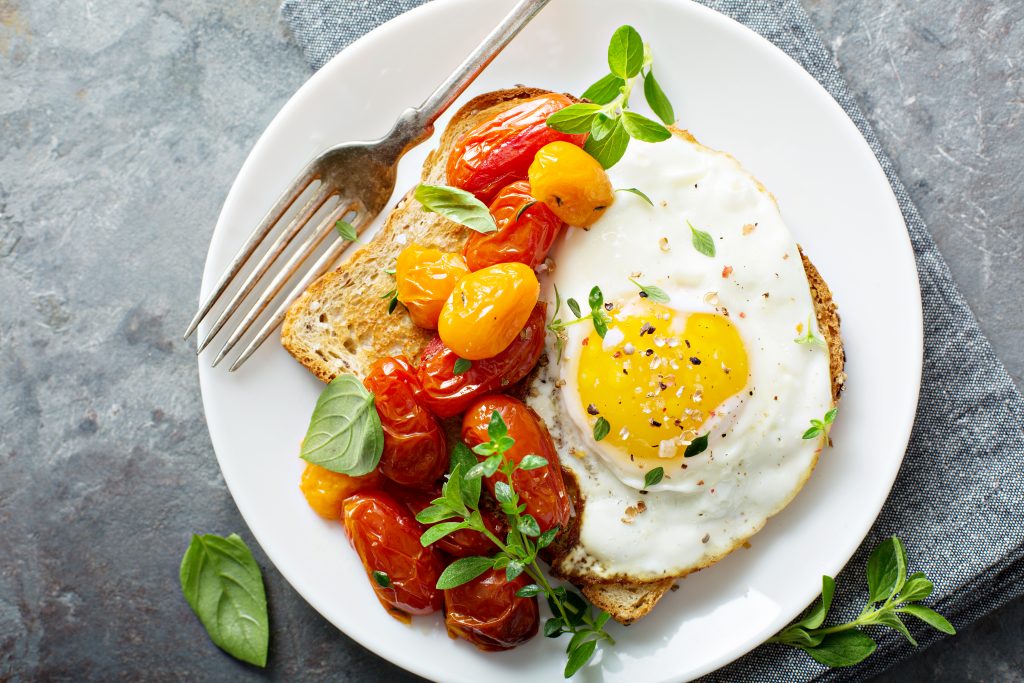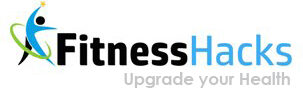
Don’t run on empty, especially if you train early in the morning. An ideal pre-workout meal has adequate protein, some carbohydrates, and a little healthy fat. Pre-workout, post workout or at any time of the day – Eggs are the perfect foods for you.
One egg has only 75 calories. But they are so nutritious that they’re often referred to as “nature’s multivitamin.”
A Complete Protein
Proteins are the main building blocks of the human body. Your body uses amino acids — the nutrients obtained from protein — as building blocks to build new proteins, cells and tissues.
A complete protein (or whole protein) is a source of protein that contains an adequate proportion of all nine of the essential amino acids necessary for the dietary needs of humans or other animals.
Eggs are a good source of protein and they contain all of the essential amino acids, so they provide complete protein. One hard-boiled egg gives men 11 percent of their daily intake, while women get 14 percent. In a large egg, about 43 percent of the protein is found in the yolk.
Nature’s Multivitamin
An egg has 7 grams of high-quality protein, 5 grams of fat, and trace amounts of carbohydrates, along with iron, vitamins, minerals, and carotenoids. It is a powerhouse of disease-fighting nutrients like lutein and zeaxanthin. The choline content of eggs enhances brain development and memory.
One large egg contains:
- Vitamin A: 6% of the RDA.
- Vitamin B2 (Riboflavin): 15% of the RDA.
- Vitamin B5 (Pantothenic Acid): 7% of the RDA.
- Vitamin B12 (Cobalamin): 9% of the RDA.
- Selenium: 22% of the RDA.
- Eggs also contain small amounts of almost every vitamin and mineral required by the human body… including calcium, iron, potassium, zinc, manganese, Vitamin E, Folate and many more.
- Whole eggs are an excellent source of choline. A single egg contains more than 100 mg of this very important nutrient. Choline is used to build cell membranes and has a role in producing signalling molecules in the brain, along with various other functions.
Almost all the nutrients are contained in the yolk while the white contains only protein.
Don’t Worry about the Cholesterol

If you’ve been avoiding eggs because you are worried about dietary cholesterol and coronary heart disease, it’s time to think again. According to the American Heart Association, healthy adults can enjoy an egg every day without increasing their risk of heart disease. In fact, the lutein found in egg yolks protects against the progress of early heart disease.
Eggs are high in cholesterol. In fact, a single egg contains 212 mg. This is more than half of the recommended daily intake of 300 mg. Unlike previous beliefs, it has been discovered that cholesterol in the diet doesn’t necessarily raise cholesterol in the blood.
Large amounts of cholesterol are produced by your liver every single day. When your intake of dietary cholesterol is higher, the liver produces lesser quantities of cholesterol maintaining an overall balance. This response varies among individuals: In more than 70% of the population, eggs don’t raise cholesterol at all. Total and LDL cholesterol may rise mildly in the remaining 30% of ‘hyper responders.’
Eggs Can Help You to Lose Weight

The Satiety Index measures the ability of foods to induce feelings of fullness and reduce subsequent calorie intake. Eggs score really high on this one as they are incredibly fulfilling.
In a study using 30 test subjects, it was observed that egg-breakfasts induced greater satiety and significantly reduced short-term food intake. Including eggs in meals increased feelings of fullness and made the subjects automatically eat fewer calories for the next 36 hours.
Versatile Egg Recipes

From boiled eggs to french toasts, there is an egg dish for everyone. Have them scrambled or sunny side up. Boil or poach eggs to serve them without any added calories.
Frittatas are a great way to incorporate vegetables and meats with eggs, to create healthy, filling, and delicious meals.
Check out our collection of delicious egg frittata recipes:
